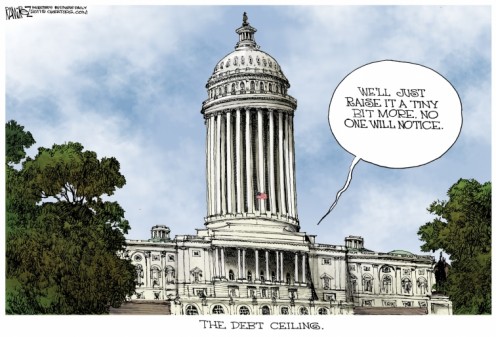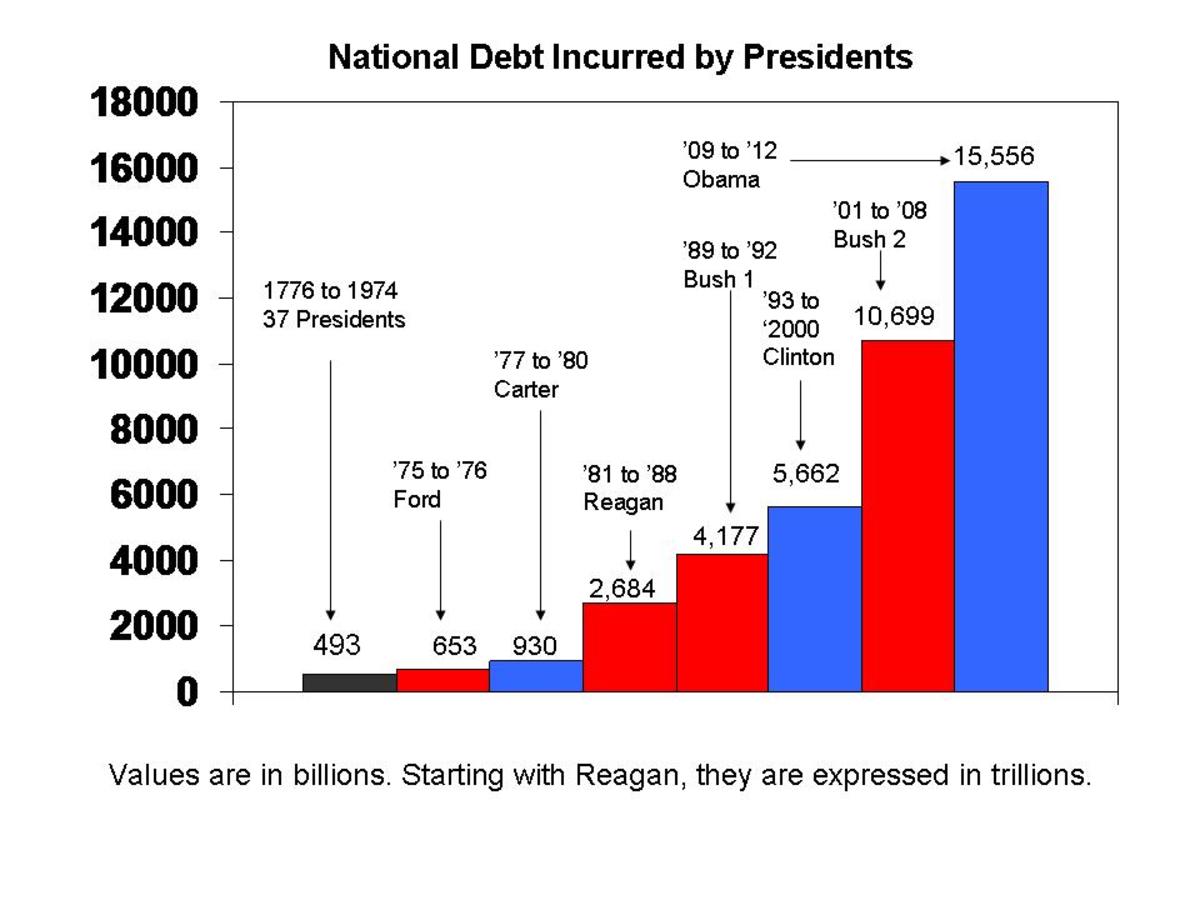The Debt Ceiling Debate and Compromise: Who Won? [65]

The Democrats Won!
THERE probably isn't a pundit in the U.S. who would agree with my assertion that President Obama and the Democrats won this debate. Why can I say this? I believe these pundits, as with most Americans, are often short-sighted; they only see what is right in front of them and have no sense of history or future. (I include myself in this general condemnation but hope I am less short-sighted than the average bear.) There is no doubt that if you look through a microscope, the Conservatives won this controversy big time. However, if you look through a telescope and pull back a bit, I think you will find the President, and Democrats did much better than whay you are hearing in the news at the moment.
As I said, if you look at "right now", the Republicans win, but if you consider where things were in January and what they will be September, then you might come to a different conclusion; so let's look.
So, what are the pieces to this puzzle? First, you need to remember that this year, there were three chances to make changes to the budget; 1) when the 2011 budget was passed in April, 2) when the debt ceiling needed to be raised in May 2011, and 3) when the 2012 budget will be debated starting Aug 3, 2011; the existence of the last opportunity plays directly in my analysis and conclusion that the Democrats won. With the understanding, we need to look where this all started and what the President and Democrats wanted ... a clean debt ceiling increase.
That was in January 2011, and it was not to be; the Conservatives made the strategic political decision to hold the country hostage by tying an increase in the debt ceiling, which pays for bills already incurred, to future budget cuts ostensibly made to lower the deficit and debt. (I would argue the things they were trying to cut, in the current economy, would have led to higher debt and deficit because it would have caused another recession; see President Roosevelt's austerity measures in the mid-1930s for an example.) As many Democrats have correctly pointed out, this crisis, which almost brought America to its knees and, which has now caused permanent economic damage, was completely fabricated by the Conservatives; it simply wasn't necessary and has probably done more harm than any good the Conservatives thought it might bring. The reason this crisis was no more than Conservative drama is the fact there is still one more round of budget negotiations planned, the 2012 budget negotiationss; negotiation that would have occured even if they were part of the mandated commissions that are Part 2 of the debt ceiling compromise.
One scenario that could, and should, have played out is 1) in April 2011, the Conservatives wrung substantial budget concessions from the Democrats in order to pass the 2011 budget; 2) beginning in May 2011, Conservatives could have raised a stink about needing still more budget cuts but not tie it to the debt ceiling increase, and 3) beginning in June 2011, Conservatives could have made the same full-court press for their additional budget cuts during the process designed for such a debate, the 2012 budget negotiations.
Instead of this normal process, the Conservatives saw a chance to essentially extort the budget cuts they felt were needed out of the Democrats by threatening to destroy America if they don't get their way (no sense in sugar-coating it). What did they get for their troubles? Probably not much more than they would have if they had waited to make their case during the 2012 budget talks.
Interesting statement that, don't you think? Let's see what the Conservatives got for trouble; about $900 billion in budget cuts that take effect in a couple of years and a promise to negotiate more over the next several months. Since the Democrats long ago conceded that more substantial cuts were needed above and beyond those included in the 2011 budget compromise, getting the same $900 billion in cuts during the 2012 budget talks was probably a foregone conclusion. So I ask you, dear readers, what was the point? Why did the Conservatives drag America through this?
This is why I think the Democrats won; they got the debt ceiling raised, which should have happened after a lot of alpha male posturing, and gave up cuts they were prepared to do anyway. At the same time, the Democrats preserved the right to take up the fight for what they, and I, believe are necessary, appropriately applied tax increases to increase revenues. So, where is the lose?
- Did You Hear House Speaker Boehner on the Debt Ceili...
IF JOHN BOEHNER really understands how the government works. A partial quote I want to start off with was delivered on July 12, 2011 in the group meet the Conservatives held recently where Speaker Boehner...








